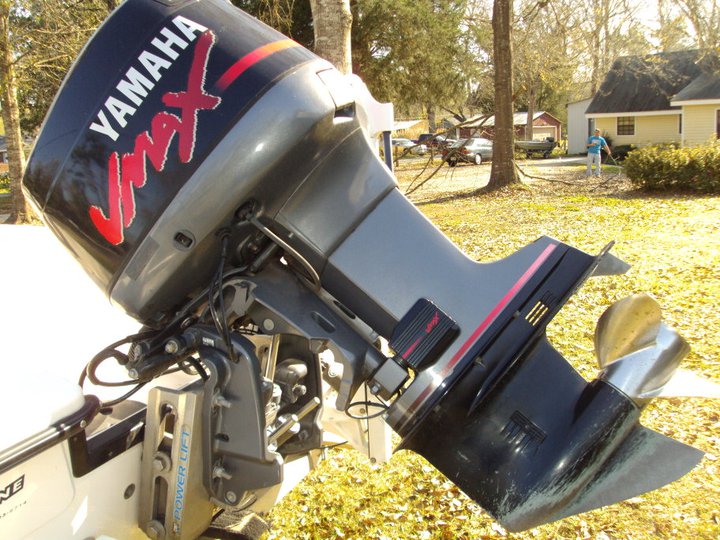Don't learn the hard way. I share my knowledge gained from running different bodies of water in different boats.
Steel or aluminum props?
They both have their purpose.
I'd say that if you have a prop that works, spend the extra dough on a spare prop and replacement parts. Unexpected events happen out on the water and it's good to be prepared. If you want to know some of my personal experiences, then be sure to read on.
Different Properties
Aluminum and steel have different properties. They are nowhere close to being the same.
Steel
Steel is stronger and doesn't flex, enabling a propeller to bite into oncoming water, rather than give way to it.
More aggressive propeller designs can be achieved with steel as well. Because of this, a steel propeller improves overall performance of a boat.

I use an aluminum prop when running on the Pearl River. There are many submerged logs to hit.
Aluminum
Of course, aluminum is weaker than steel and will flex.
Being weaker isn't necessarily a disadvantage, however. Aluminum has more "give" than steel, allowing it to deform easier.
If the prop doesn't give, then something weaker than the prop will, like the prop shaft or even something inside the lower unit!
Replacing such parts is more costly and time-consuming than repairing an aluminum propeller.
Different Applications
Two different metals call for two different applications.
Aluminum
There are a lot of underwater obstructions in the form of sunken logs and tree stumps. This is why I use an aluminum prop when running water like the Pearl River.
An aluminum prop will fold in on itself, protecting the gears turning it.
Experience
Ask me how I know, on my forum, Louisiana Fishing Reports.
Because aluminum is lighter, it is easier for smaller outboards to turn these props. I'm referring to motors 25hp and below.
Steel
As mentioned before, steel doesn't flex and because of this power will not be lost.
The specified dimensions will keep their shape, allowing the steel prop to be more efficient.
When I installed a brand new steel prop on my flatboat she ran like a scalded dog. This is despite the pitch and diameter being the same as the aluminum prop it replaced.
What I Recommend
On my bay boat I run only a steel prop. For my flatboat, I have both aluminum and steel.
During the fall/winter, on my bay boat, when I am inside the marsh more often, I run an older steel prop that already has some dings in it from oysters and what not.
During the summer time I change props. I am in deeper/cleaner water like Breton Sound and less prone to hit an obstruction. So I run a newer prop for more performance and mileage.
This really helps out over those long distances. Think "fuel consumption".
When running the marsh, I would always recommend a steel prop.
It is up to you to learn which propeller works best for your boat. All boats are different and so are their owner's performance expectations. When you get the chance, take time to learn about pitch and diameter, two important characteristics of any prop.

For his bay boat, Captain Devin uses a steel prop. This aids him in top end speed and hole shots.
